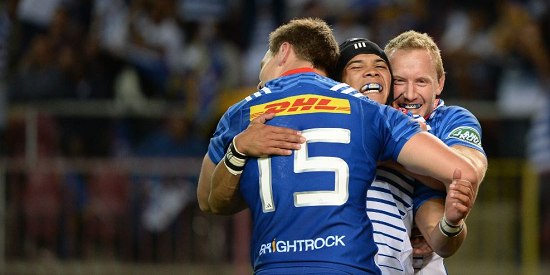 Emotion lies at the heart of every game of rugby, but in an age when technical prowess and strategic initiative are key, it can get in the way of victory
Emotion lies at the heart of every game of rugby, but in an age when technical prowess and strategic initiative are key, it can get in the way of victory
There is so much being said this year about South Africa’s SuperRugby players being poorly conditioned and unable to keep up with the New Zealanders. I have no intention of joining the chorus, although I do want to change the focus from ‘less than optimal’ performance to something a little less obvious.
Sure, SA players may be a little off the pace physically against their New Zealand counterparts, but I think it goes a little deeper, and naturally moves more to the head region.
Let’s go back to 1995, and that iconic Rugby World Cup final. The Springboks taking on the mighty All Blacks. It was an occasion fueled with emotion, creating a sporting atmosphere never before seen in our fair land.
Needless to say there weren’t any tries scored that day. It was about never missing a tackle, and applying pressure on the opponent at every possible opportunity. Greatly outmatched in the skills area, the Boks stuck to their strengths and eventually outlasted the All Blacks. Joel Stransky kicked the winning drop goal, and when the final whistle went, Bok captain Francois Pienaar fell to his knees as the tears flowed. The titanic effort was over, and the emotions poured out without control.
Fast forward to today, and the game has changed a great deal. The players are fitter and faster, more skillful, tactically astute and composed under pressure. Yet, South African rugby still often exudes an emotional front where a ‘no guts, no glory’ approach seems to supersede all others.
The amazing New Zealanders are naturally the benchmark in rugby, and seem to play a far superior game. Does emotion come into it? Not to an excessive level. Of course the game means everything to them, but strategy, skill and flair trump anything else. Their players are focused, but also having fun. They look loose and casual at times, conserving their energy for when it is needed throughout the match.
That is who they normally are, but then a very interesting thing just happened against the British and Irish Lions. Going into the 3rd Test of the series with things in the balance, this usually calm and collected team suddenly spoke about being ‘fired’ up. They were set to ‘do their country proud’ and with that they stuttered through 80 minutes of rugby in that final test and managed a draw against a team that weren’t exactly their equal.
They dropped balls, tried too hard, and looked ordinary for once. Emotion crept in, and it seemed to hinder a team that has been essentially unbeatable in recent years.
Emotion is tiring. No matter how physically fit you are, you will be worn out when this dominates. It also makes clear thought a little difficult. Tunnel vision takes place which leads to infringements, or losing belief in the game when things don’t go according to plan.
SA teams are notorious for playing hard, not smart. For all this emotional effort, they often don’t seem to be thinking about the actual playing of the game, excelling in skilled areas, adapting to situations or outsmarting the opposition. They may be making more tackles and stepping up in the physical exchanges, but you don’t get anything on the scoreboard for that.
Then they lose and their coach says they will ‘try harder’, fight to ‘make the fans proud again’. Heaping more emotion on an already big problem perhaps caused by emotion. You can keep running into a brick wall to show you are committed, but it means little when the goal is to find a way past the wall.
Rugby is a contact sport so emotions will run high, but they need to be harnessed for good. The next time you watch a game, look out for the draining effects of emotion. Notice how the playmakers always look like they have a lower heartrate than the rest, how the breakdown specialists are not frothing at the mouth, but plotting every movement for efficiency and impact.
Then look at the guy who looks like he wants to run through a wall. There is a good chance they will miss a tackle, give away a penalty or run into someone when there is space outside.
Thankfully we saw less of the latter recently from the Boks, and long may this continue.

Leave a Reply